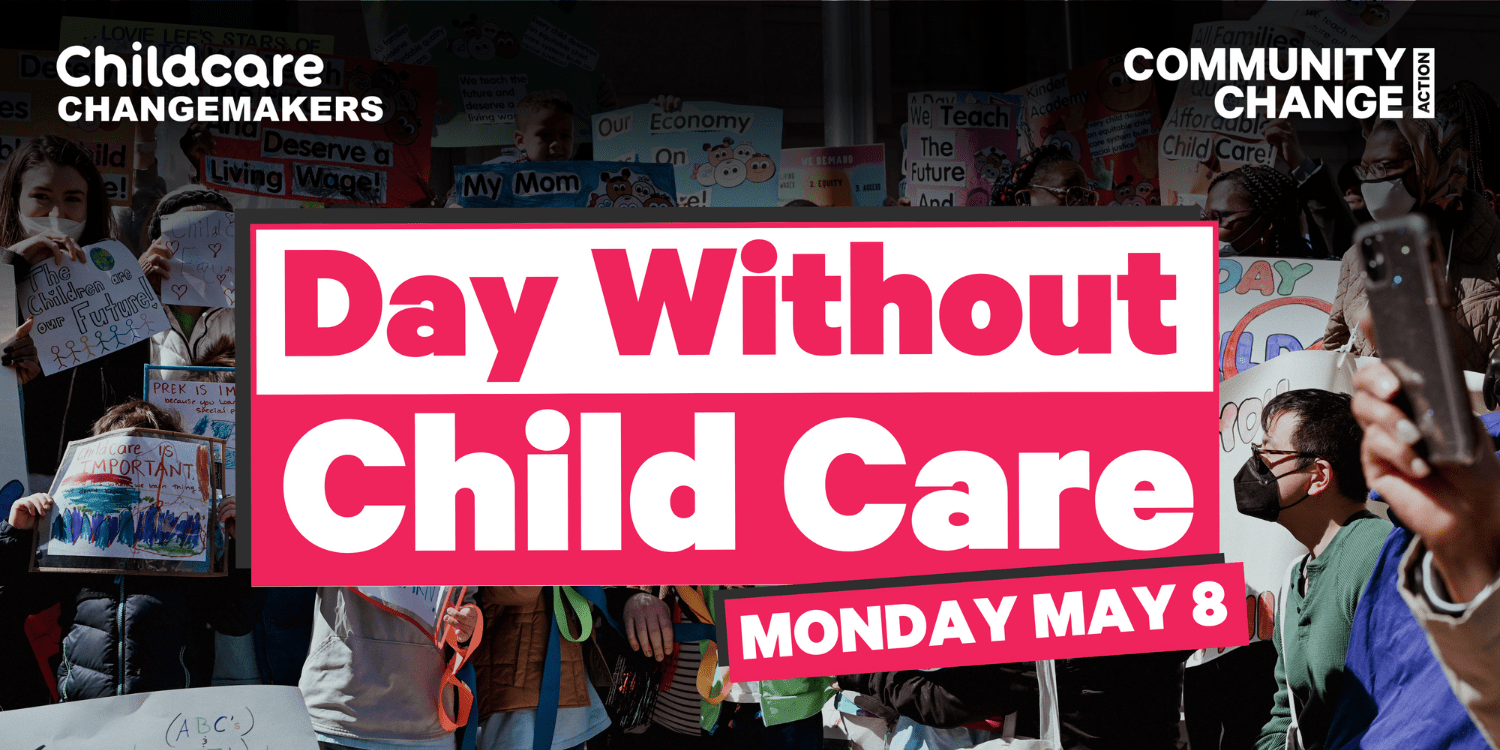Almost every mom can tell you the necessity of quality child care. From centers reflecting the demographics of the neighborhood, to earlier openings and later closings to accommodate the schedules of working parents, to a living wage for staff — many of whom are parents themselves! — the need for accessible, affordable and sustainable child care is clear and concrete. But while costs for care have continued to grow faster than inflation, essential workers in the field still find themselves without a livable wage — and when staff leave the field for better-paying work, centers are forced to reduce their hours, increase their costs or close entirely, meaning even more families cannot access the care they need.
The brunt of the child care crisis is particularly carried by Black and Brown women. They left the workforce in statistically higher numbers due to COVID-related loss of child care, widening already stark gender and pay gaps. Black and Brown women also represent 40% of the early childhood workforce and are more likely to be paid poverty-level wages.
This is why hundreds of child care staff, parents of every gender, education advocates and more are coming together to mark the second-ever Day Without Child Care, a nation-wide strike of child care providers to draw public and national attention to the child care crisis. Nearly 400 centers in 2022 pledged to close their doors, with hundreds of other centers and leaders participating in education or public action to show solidarity with the movement. This year’s theme is “Who Pays the Real Cost of Care?”, drawing attention to the rising costs of child care along with a lack of living wages for providers.
The annual Day Without Child Care is coordinated by Childcare Changemakers (part of Community Change) as a coalition of parents, care providers and organizations working toward living wages, equitable child care systems and affordable child care for all families. Within that coalition are a number of WKKF grantees, including:
- The Alabama Institute for Social Justice, a child care advocacy agency since 1972, working to achieve meaningful and sustainable systems change in support of under-resourced children and families in Alabama’s Black Belt
- ISAIAH, a multi-racial, state-wide, nonpartisan coalition of faith communities and other community based constituencies fighting for racial and economic justice in Minnesota, including child care providers, teachers and families who form the initiative Kids Count on Us
- The Ohio Organizing Collaborative, which since 2007 has worked to build transformative relational power with everyday Ohioans for statewide social, racial and economic justice
- Family Forward Oregon, an intersectional movement centered on care to fight for economic and reproductive justice for all caregivers (both familial and professional caregivers) in Oregon
- Mothering Justice, a national organization providing mothers of color with resources and tools to make equitable changes in policy, including how to advocate for affordable child care
To join the Day Without Child Care, families, providers and individuals can:
- Pledge to take action virtually or in person on Monday, May 8.
- Use social media to share messages and draw others into the movement.
- Participate in a Day Without Child Care event in your community — or begin planning one for 2024!
- Join the Virtual Day Without Child Care Celebration on Monday, May 8, at 7:00 pm ET/6:00 pm CT/5:00 pm MT/4:00 pm PT.









Comments